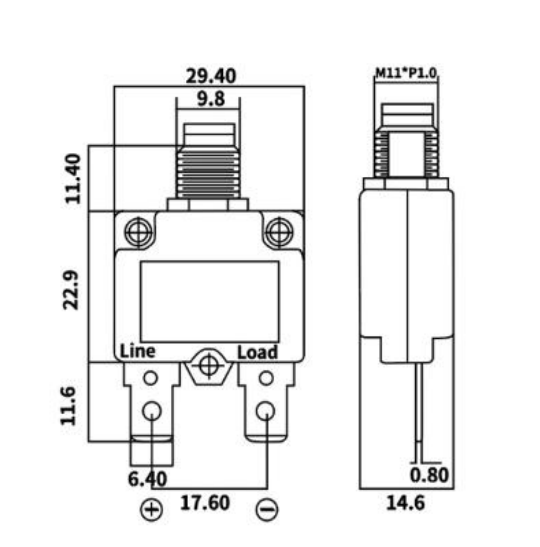Self-Annealing Tape Innovations in Electrical Insulation
In the realm of electrical insulation, self-annealing tape has emerged as a revolutionary product that enhances safety, durability, and performance in a variety of applications. This innovative tape combines advanced material technology with practical design, making it an ideal choice for electricians and engineers alike. Let's explore the features, benefits, and applications of self-annealing tape, shedding light on why it is becoming an indispensable tool in electrical work.
What is Self-Annealing Tape?
Self-annealing tape, often referred to as self-fusing or self-bonding tape, is made from advanced silicone or rubber materials that possess unique properties allowing them to fuse together without the need for adhesive. The tape typically exhibits a high degree of insulation resistance and thermal stability, making it particularly suitable for environments characterized by extreme temperatures and electrical stress.
The term self-annealing refers to the process that occurs when the tape is wrapped around an object. Upon contact with itself, the layers fuse together, creating a solid, waterproof seal that enhances insulation performance. This self-fusion capability eliminates the need for additional adhesives, making application quicker and cleaner.
Key Benefits of Self-Annealing Tape
1. Superior Insulation Properties One of the primary advantages of self-annealing tape is its excellent electrical insulation properties. The tape can withstand high voltages, making it suitable for various electrical applications, including transformers, motor windings, and cable repairs.
2. Resistance to Environmental Elements Self-annealing tape is often resistant to moisture, chemicals, and UV radiation. This resistance ensures that it maintains its integrity and performance in outdoor and industrial environments, providing reliable protection against wear and tear.
3. High Flexibility and Conformability The flexible nature of self-annealing tape allows it to conform to irregular shapes, making it easy to wrap around wires, connectors, and other components. This adaptability ensures complete coverage and eliminates the risk of exposed surfaces.
4. Ease of Use Applying self-annealing tape is straightforward. Users simply unroll the tape and wrap it around the target area, overlapping each layer. The self-fusing feature means that no additional tools are required for application, streamlining the repair or insulation process.
self annealing tape

5. Temperature and Chemical Resistance In addition to electrical insulation, self-annealing tape can withstand a wide temperature range, typically from -60°C to over 200°C. This elasticity under temperature fluctuations makes it suitable for a variety of applications, from automotive to aerospace industries.
6. Non-Tacky and Clean Application Unlike traditional tapes that can leave adhesive residues, self-annealing tape does not require any sticky backing. This aspect makes it cleaner and easier to handle, preserving the aesthetic and functionality of the items being insulated.
Applications of Self-Annealing Tape
Self-annealing tape finds applications in numerous fields, each benefiting from its unique properties. Here are a few notable examples
- Electrical Repairs and Insulation Electricians frequently use self-annealing tape for quick repairs on wiring, connectors, and electronic components. Its ability to create a robust, insulated seal ensures safe and reliable connections.
- Automotive Industry From wrapping wires to sealing joints, self-annealing tape is commonly used in vehicles. Its durability and resistance to heat make it particularly useful in areas near engines and exhaust systems.
- Aerospace Engineering With demanding regulations for safety and performance, aerospace manufacturers utilize self-annealing tape for bonding and insulating wires and components in aircraft.
- Marine Applications Exposure to saltwater and humidity is a significant concern in marine environments. Self-annealing tape offers reliable protection against corrosion and electrical failures in boats and other watercraft.
Conclusion
Self-annealing tape represents a significant advancement in electrical insulation technology. Its unique self-fusing properties, combined with outstanding resistance to environmental factors, make it an ideal solution for a broad array of applications. As industries continue to innovate and demand higher standards for safety and reliability, self-annealing tape is set to play an increasingly important role in the future of electrical engineering and maintenance. Whether you’re an electrician, automotive technician, or engineer, integrating self-annealing tape into your toolkit is a smart choice that will enhance both efficiency and effectiveness in your work.
-
XIANGFAN Rubber Tape-Ultimate Solutions for All Your Insulation NeedsNewsJun.24,2025
-
XIANGFAN Rubber Tape-Protection for Industrial and Residential ApplicationsNewsJun.24,2025
-
XIANGFAN Rubber Tape: Superior Safety and Sealing for Demanding EnvironmentsNewsJun.24,2025
-
XIANGFAN Rubber Tape: Reliable Solutions for Every Electrical ChallengeNewsJun.24,2025
-
XIANGFAN Electrical & Industrial Tape: Powering Reliability Across IndustriesNewsJun.24,2025
-
XIANGFAN Electrical & Industrial Tape: Excellence in Every ApplicationNewsJun.24,2025
